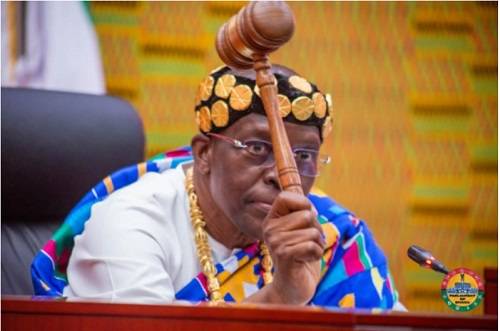You can't call anyone witch in Ghana; it's a crime - Parliament
In a major development, the Parliament of Ghana has recently criminalized the act of accusing someone of being a witch. The landmark legislation, known as the Criminal Offences (Amendment) Bill, 2022, specifically targets the practice of witchcraft accusations and prohibits the labeling, naming, or accusation of individuals as witches. The aim of the bill is to amend the existing Criminal Offences Act, 1960, and put a halt to the activities of witch doctors and witch finders.
All members of Parliament participated in a debate prior to the bill's passage, with unanimous support for the criminalization of witchcraft activities and the abolition of witchcraft camps across the country. Lawmakers argued that such measures would serve as a deterrent against baseless accusations of witchcraft and the human rights abuses associated with them. They also recognized the need to establish a legal framework that enables law enforcement agencies to effectively prosecute individuals who violate human rights through witchcraft accusations.
The bill itself was introduced to Parliament on March 31, 2023, by Francis-Xavier Sosu, along with co-sponsors Hajia Laadi Ayii Ayamba, Dr. Godfred Seidu Jasaw, Helen Adjoa Ntoso, and Betty Nana Efua Krosbi Mensah. Subsequently, it was referred to the Committee on Constitutional, Legal, and Parliamentary Affairs for thorough examination and reporting.
The tragic lynching of 90-year-old Akua Denteh in 2020, based on an accusation of witchcraft, played a pivotal role in spurring the introduction of this legislation. Following this incident, The Sanneh Institute directly petitioned Parliament on August 4, 2020, urging the criminalization of witchcraft accusations. The report from the committee highlights how the lack of knowledge and education has resulted in vulnerable individuals, particularly elderly women, facing intimidation, violence, and coerced confessions as witches. These individuals are often banished from their communities or, in some extreme cases, subjected to lynching.
Notably, Ghana is the only country with established "witch camps," where vulnerable individuals, such as older women, single mothers, widows, and unmarried women, are compelled to reside. Recognizing this dire situation, the report emphasizes the urgent need for public policy interventions to address the detrimental impact of witchcraft beliefs and the human rights violations connected to them.
The legislation aligns with international human rights treaties that Ghana has ratified, including the Universal Declaration on Human Rights and conventions against torture, cruel, inhuman or degrading treatment, and discrimination against women. The negative implications of witchcraft accusations on Ghana's human rights record were recently revealed in the 2022 Country Reports on Human Rights Practices.
The passage of this bill signifies a significant stride towards safeguarding the rights and well-being of individuals accused of witchcraft in Ghana. It reflects the country's commitment to upholding human rights standards and sets the stage for a more inclusive and just society.




No comments yet
Be the first to share your thoughts!